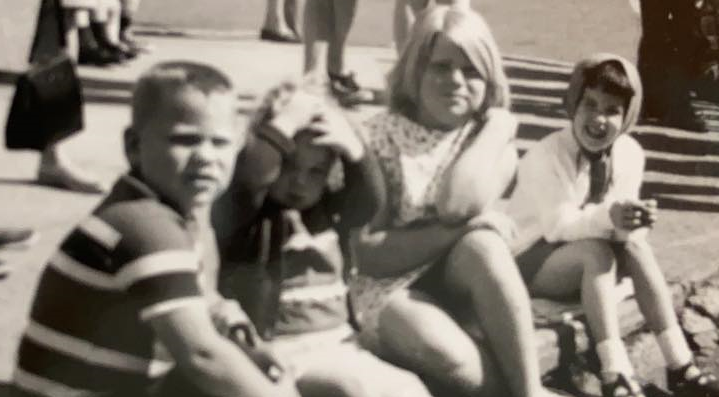"What's Wrong With You!?"
By Chuck Hall, MSOD
When I was a child, my parents asked me this on a regular basis.
 They didn’t know and I didn’t either.
They didn’t know and I didn’t either.
Each one of us has overcome challenges in our lives. Here's a bit about my journey, what I have learned, and what we can all do in the face of challenges.
From the outside, my blue-collar family looked like we were OK. But Mom suffered from untreated depression. Dad grew up as an abused child and bore the emotional scars of that. I experienced a little bit of abuse and a lot of neglect. I had several serious injuries and many dental problems as a child. Doctor offices and dental offices became very difficult environments for me. I also cried a lot in elementary school and didn’t fit in well. No one knew why.
Roll the clock ahead many years. In October 2020, I was hospitalized on an emergency basis in pretty bad shape. The ER doctor told me that most people in my situation did not arrive alive, and often they could do nothing for those who did. I was lucky. After four days in the hospital and good follow up care, I regained my health. (A deeper dive into that if you care to read more: https://www.linkedin.com/pulse/significant-admission-chuck-hall-msod-he-him-/)
How did I get so sick? As an adult going to the doctor became increasingly more difficult for me to handle. I couldn’t go. I had decided that it would be better to die than go to the doctor. It almost played out that way, because I had no medical care for more than 20 years until the day I was hospitalized.
Why did I go through all of this?
After I got out of the hospital, I wanted answers. I ultimately got my answers by working with an excellent therapist. He helped me realize that adverse childhood experiences, especially around injuries, medical treatment and poor dental care, led to complex PTSD. I have PTSD similar to that experienced by veterans, first responders and crime victims. On top of that, we also determined that I am autistic
(More on my PTSD diagnosis and autism diagnosis: (https://www.linkedin.com/pulse/hello-ptsd-i-finally-know-your-name-chuck-hall-msod/ https://www.linkedin.com/pulse/power-sharing-our-journey-chuck-hall-msod/)
I went through the first 60 plus years of my life not only dealing with untreated trauma, but also not knowing that I sense and process the world differently than most people because I am an autistic person.
So what have I learned from all of this? It is not a cliché that we do not know the battles others are fighting.
Over the past two years, I have studied and learned a lot about mental health and how we can help each other. I earned my certification as a peer specialist for mental health last year, and recently started working part-time with View Point Health to help others. I regularly share mental health information in social media and have become a resource for friends, family and acquaintances who seek support and encouragement on their own journeys toward mental wellness.
There are people all around us who we love and care about. Many may be suffering more than we know.
What can we do about this?
- Take care of your own mental health. Self care is essential. If you are struggling with something or unsure of your mental wellness, talk to a peer or seek out a therapist who you can talk to. ( https://www.nimh.nih.gov/health/topics/caring-for-your-mental-health
- Be aware and be kind. There are people in our lives who need us. A kind word, a little bit of support, the gift of paying attention and listening to others can go a long way. (https://www.mentalhealthfirstaid.org/2017/07/quiet-power-listening/)
- Learn about the ACES study – the effects of Adverse Childhood Experiences. Take the ACES quiz yourself and see if you are at risk for certain medical conditions based on childhood trauma. You can also think about children in your life and be alert to how they may be suffering and how you can help. (https://www.npr.org/sections/health-shots/2015/03/02/387007941/take-the-ace-quiz-and-learn-what-it-does-and-doesnt-mean)
- As a leader, be aware of the mental well-being of your team members at work. How can you create an environment of psychological safety that is supporting and nurturing? Let people know you care about their mental health and wellbeing. And show it by your actions. (https://www.15five.com/blog/psychological-safety-in-the-workplace/)
- Reach out to people you feel may be lonely or isolated or struggling. Your kindness may be the lifeline someone needs. Let them know you care. (https://onbeing.org/blog/omid-safi-how-to-reach-out-to-someone-who-is-struggling/)
I am available to talk with you about mental health if you need someone to talk with. We are all in this together, and we never know the battles others may be fighting. Always remember, we are all in this together. You are not alone.
Chuck Hall is a business coach and consultant with more than 40 years of experience, largely in leadership and management. He earned a Master of Science in Organizational Dynamics from the University of Pennsylvania, and is also a Certified Peer Specialist for Mental Health (CPS-MH). Chuck is passionate about helping people be happy and enjoy a strong sense of well-being while balancing achievement of professional goals. Chuck is a member of the Society for Human Resource Management (SHRM) and the Atlanta Chapter of the Association for Talent Development.
